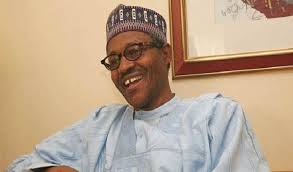
A wave of apprehension is sweeping through Ministries, Departments and Agencies as President Muhammadu Buhari begins a probe into the office of the late Chief of Staff Abba Kyari. The investigation may lead to all appointments and approvals made by Kyari without Buhari’s permission being cancelled.
Rumours within the Presidential Villa suggested that the power block that produced the new Chief of Staff Ibrahim Gambari might be the force fighting back.
Sleep might have already begun eluding many officials in the MDA’s on account of contracts okayed without Buhari’s approval. If this is what the president is targeting with a view to shoring up his sagging profile, analysts say trouble looms for those who cut illegal deals with the late CoS.
Though no reason was given for the president’s action, reports suggested no less than 150 memos that didn’t have his authorisation may have been uncovered.
Special Adviser on Media and Publicity Femi Adesina declined to confirm or refute the report. “I’ve seen your text. I’ve seen your text,” he simply said and ended the call. Also, Senior Special Assistant on Media and Publicity Garba Shehu did not reply to a text message seeking a confirmation on the development.
The first sign that all was not okay within Buhari’s inner cabinet emerged in December 2019 when National Security Adviser Babagana Monguno wrote a memo to the president alleging interference by Abba Kyari. He accused the late Kyari of usurping presidential powers and directed service chiefs to ignore instructions by the latter.
Monguno’s account of a connection between Kyari’s alleged ‘meddlesomeness’ and an acute spectre of insecurity that had gripped the country was contained in a series of confidential circulars he addressed to top administration officials on national security.
The NSA also accused the chief of staff of sidestepping the president’s directive, to impose his own decision for implementation; a claim some analysts said was all but a direct accusation of treason against Kyari.
The revelations, first published by an online portal, appeared to undercut an integral aspect of the president’s response to critics: that there is unity among security chiefs towards the common interest of defeating terrorists and armed bandits, rather than an admission of clumsiness or crack in his team.
In media interviews after the memo leaked, Chief of Army Staff Tukur Buratai said insecurity was being confronted across board in the Buhari administration. But Monguno’s memo showed he and other service chiefs had been taking controversial orders from Kyari, despite warnings from the NSA that such a practice was not only unconventional but also in violation of the constitution.
The first signs of war between the NSA and the CoS, two of Buhari’s most powerful aides, was the open letter which revealed both men locked in a bitter confrontation amid raging insecurity.
Perhaps the most potent of allegations raised against the chief of staff by the NSA at the time was that he had been flagrantly discarding decisions already taken by the president and imposing his own recommendations. Observers saw this as a jarring allegation bordering on treasonable felony.
Since Buhari settled down in office in 2015, Kyari’s role as the chief of staff made him, perhaps, the most-courted associate of the president, arguably more than the president’s wife and other family members.
The chief of staff’s influence exposed him to some of the worst scandals of the administration. Shortly after telecoms giant, MTN, was slammed with a record fine in 2015, Kyari was the one who allegedly played the middleman in negotiating the fines, a role that threw up allegations of fraud when the scandal broke.
An MTN official who allegedly played a key role in the negotiation was said to have lost her job amid the controversy. But Kyari held on to his position, going forward to take part in bigger deals on government’s behalf. Kyari’s influence was also a matter of serious concern for Aisha Buhari, the president’s wife, who had repeatedly lashed out at the chief of staff for allegedly ‘caging’ her husband and making her redundant in the government.
Last November, an online newspaper reportedly obtained documents showing Kyari overriding Vice President Yemi Osinbajo on a crucial decision on RUGA projects, a series of economic palliatives designed to curtail the herdsmen crisis. It was unclear when President Buhari began his friendship with Kyari, but there is little question that it remained deep and robust since 2015.
When the president was re-elected in 2019, he issued a directive to all his appointees to clear files and memos through Kyari on any matter that required presidential attention. The president did not even single out his vice president as an exception to that restriction.

